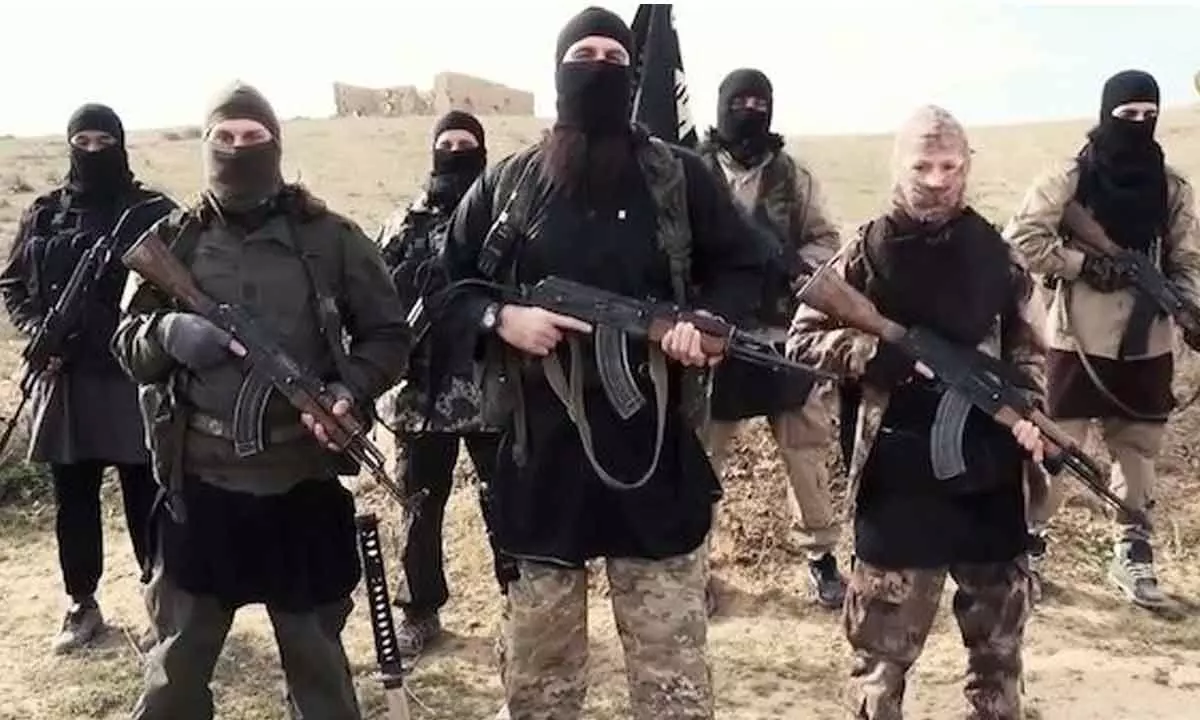Islamic State: Defeated but still lethal

From the self-declared caliphate, the group planned deadly attacks around the world and carried out brutal killings, including the beheading of Western journalists, setting a Jordanian pilot on fire while locked inside a cage days after his fighter jet was shot down and drowning opponents in pools after locking them in giant metal cages. A coalition of more than 80 countries, led by the United States, was formed to fight the group and a decade later continues to carry out raids against its operatives’ hideouts in Syria and Iraq.
Baghdad: A decade after the Islamic State militant group declared its caliphate in large parts of Iraq and Syria, the extremists no longer control any land, have lost many prominent leaders and are mostly out of the world news headlines.
Still, the group continues to recruit members and claim responsibility for deadly attacks around the world, including lethal operations in Iran and Russia earlier this year that left scores dead.
Its sleeper cells in Syria and Iraq still carry out attacks against government forces in both countries as well as US-backed Syrian fighters, at a time when Iraq’s government is negotiating with Washington over a possible withdrawal of US troops. The group that once attracted tens of thousands of fighters and supporters from around the world to come to Syria and Iraq, and at its peak ruled an area half the size of the United Kingdom was notorious for its brutality.
It beheaded civilians, slaughtered 1,700 captured Iraqi soldiers in a short period, and enslaved and raped thousands of women from the Yazidi community, one of Iraq’s oldest religious minorities. “Daesh remains a threat to international security,” US Army Maj. Gen. J.B. Vowell, the commanding general of Combined Joint Task Force — Operation Inherent Resolve, said in comments sent to The Associated Press.
“We maintain our intensity and resolve to combat and destroy any remnants of groups that share Daesh ideology,” Vowel said, referring to IS by its Arabic acronym. In recent years, the group’s branches have gained strength around the world, mainly in Africa and Afghanistan, but its leadership is believed to be in Syria.
The four leaders of the group who have been killed since 2019 were all hunted down in Syria. In 2013, Abu Bakr al-Baghdadi, then the leader of the Islamic State in Iraq group, which was formed as an offshoot of al-Qaida, distanced himself from the al-Qaida global network and clashed with its branch in Syria, then known as Nusra Front.
The group renamed itself the Islamic State in Iraq and the Levant and launched a military campaign during which it captured large parts of Syria and Iraq. In early June 2014, the group captured the northern Iraqi city of Mosul, Iraq’s second largest, as the Iraqi army collapsed.
Later that month, the group opened the border between areas it controlled in Syria and Iraq. On June 29, 2014, al-Baghdadi appeared as a black-robed figure to deliver a sermon from the pulpit of Mosul’s Great Mosque of al-Nuri in which he declared a caliphate and urged Muslims around the world to swear allegiance to the caliphate and obey him as its leader.
He was referring to Abu Musab al-Zarqawi, al-Qaida’s leader in Iraq who was killed in a US strike in 2006. From the self-declared caliphate, the group planned deadly attacks around the world and carried out brutal killings, including the beheading of Western journalists, setting a Jordanian pilot on fire while locked inside a cage days after his fighter jet was shot down and drowning opponents in pools after locking them in giant metal cages.
A coalition of more than 80 countries, led by the United States, was formed to fight the group and a decade later continues to carry out raids against its operatives’ hideouts in Syria and Iraq. The war against IS officially ended in March 2019, when US-backed and Kurdish-led fighters of the Syrian Democratic Forces captured the eastern Syrian town of Baghouz, which was the last sliver of land the extremists controlled.
Before the loss of Baghouz, IS was defeated in Iraq in July 2017 when Iraqi forces captured the northern city of Mosul. Three months later, IS suffered a major blow when SDF captured the Syrian northern city of Raqqa, which was the group’s de-facto capital.
The United Nations says the group still has between 5,000 and 7,000 fighters in Syria and Iraq. Still, at least in Iraq, government and military officials have asserted that the group is too weak to stage a comeback.
“It is not possible for (the Islamic State group) to claim a caliphate once again. They don’t have the command or control capabilities to do so,” Iraqi army Maj. Gen. Tahseen al-Khafaji told the AP at the headquarters of the Joint Special Operations Command in Baghdad, where Iraqi officers and officials from the US-led coalition supervise operations against the extremists.











